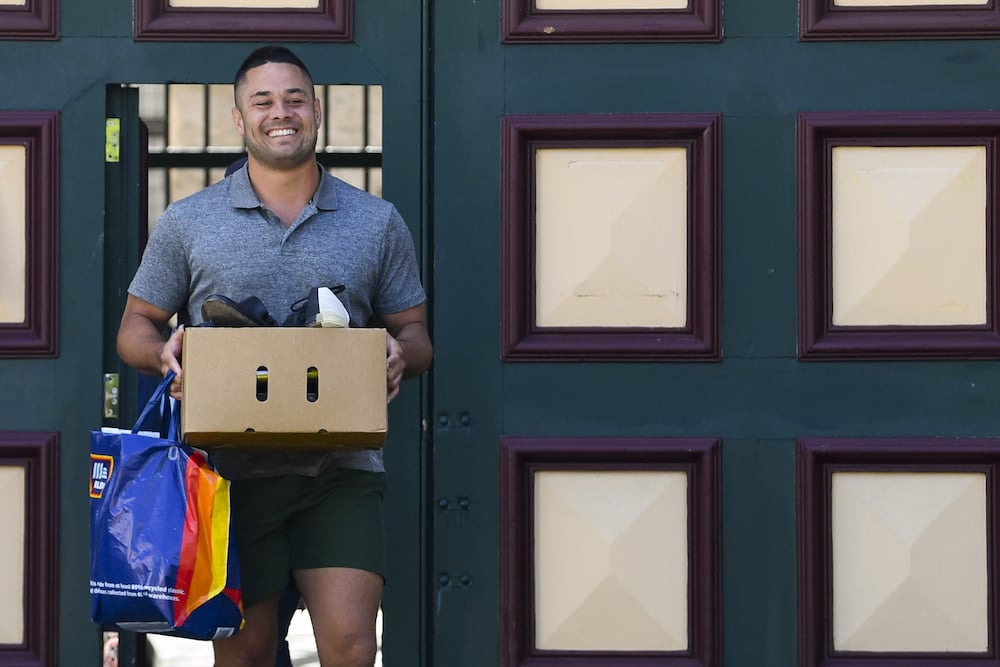Nine months after he was jailed on rape charges, former NRL star Jarryd Hayne has been freed with his convictions quashed.
The 33-year-old grinned and hugged a friend as he left Cooma Correctional Centre on Tuesday afternoon, carrying a cardboard box and Aldi bag of personal effects.
Hours earlier a district court had granted him bail, a day after a NSW appeal court overturned his convictions and ordered a third trial.
Hayne appeared in the court via audio visual link on Tuesday morning, clad in prison greens, as the judge imposed conditions on his release.
He must pay a $20,000 bail surety within seven days, must surrender his passport, and must report to police three times a week, in bail conditions agreed upon by his lawyer and the prosecutors.
He also must not contact or intimidate the alleged victim or any witnesses, and cannot enter the Newcastle local government area.
Hayne was in May sentenced to at least three years and eight months behind bars after he was found guilty of two charges of sexual assault without consent.
The ex-Parramatta player faced a retrial after his first ended with a hung jury.
The Crown contended in both trials he forcibly performed oral and digital sexual intercourse on a woman in her NSW Hunter bedroom on the night of the 2018 NRL grand final.
The alleged assault left her bleeding from her genitalia, they said.
Hayne has always maintained the encounter was consensual.
But Hayne’s barrister Tim Game SC successfully argued for his convictions to be overturned on two appeal grounds.
The jury was given legal directions by Justice Helen Syme’s that were “flawed in almost every possible way”, Mr Game said.
He also succeeded in convincing the appeal court there was an error in a pre-trial ruling on evidence he said explained the complainant’s “abiding interest in having sex with Jarryd Hayne”.
Another two appeal grounds – including that the jury’s verdict was unreasonable – were dismissed.
The matter will return to court on Friday, to fix a date for the third trial, which is expected to go for two to three weeks.
The earliest a trial of that length may be able to proceed is October, District Court judge Christopher O’Brien said.
“After that, we’re looking at 2023,” he said.
Get all the latest Canberra news, sport, entertainment, lifestyle, competitions and more delivered straight to your inbox with the Canberra Daily Daily Newsletter. Sign up here.



